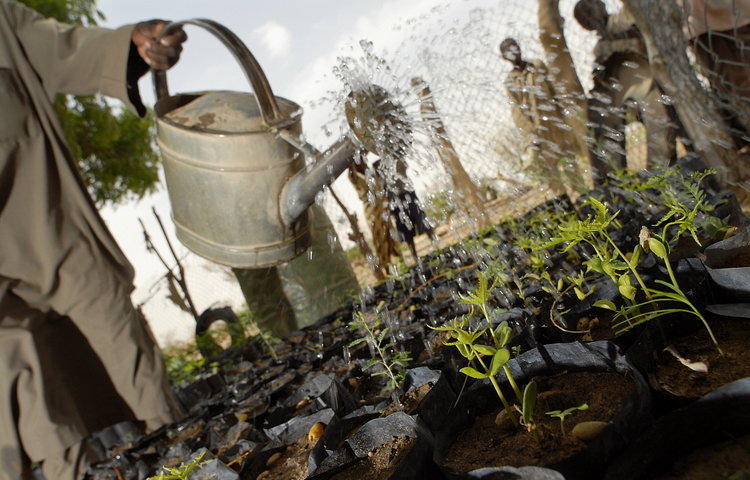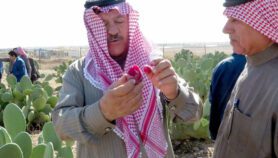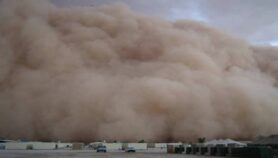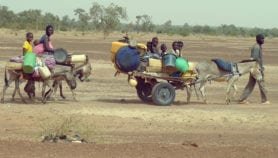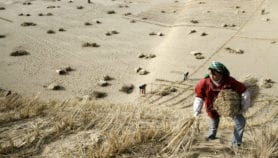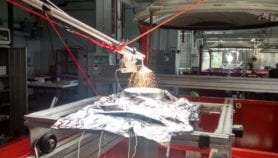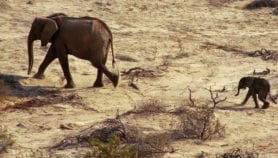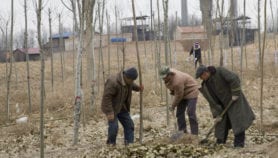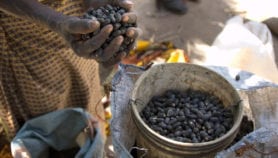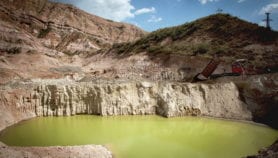By: Ian Randall
Send to a friend
The details you provide on this page will not be used to send unsolicited email, and will not be sold to a 3rd party. See privacy policy.
A trial to develop drought-resistant acacia shrubs to combat desertification in Saudi Arabia has resulted in plants that can survive on as little as one litre of water a month.
The desert trial, which ended last month, showed that acacia plants treated with the plant hormone salicylic acid — a precursor of the drug aspirin — had a higher survival rate in arid conditions than conventional plants. Around 40 per cent of seedlings treated with the hormone survived on less than a litre of water a month, whereas only three per cent of untreated seedlings did.
The test took place in the arid Thumama Nature Park near Riyadh. The trial is part of a wider project that aims to address environmental degradation caused by overgrazing, while also exploring methods of growing plants in arid environments to reverse desertification, its partners say.
“It’s not a silver bullet, but will assist plants where only low amounts of water are available.”
Jason Stevens, Kings Park
The team behind the work — representatives from Saudi Arabia’s ArRiyadh Development Authority and scientists from Kings Park, a city garden in Western Australia — are aiming to establish an area in Thumama Nature Park for producing seeds for distribution among local authorities.
“This will allow locals to collect sufficient seed to begin restoring the deserts of Saudi Arabia, something that was previously not feasible,” says Jason Stevens, a plant physiologist from Kings Park, referring to areas that have become deserts due to human activity.
To treat the plants, salicylic acid was coated on the seeds or sprayed onto the leaves of grown plants. The acid helps suppress a reactive form of oxygen molecule. Plants that do not get enough water overproduce these molecules, which damage cells and ultimately kill the plant. In addition, the chemical helps to shrink the stomata: the tiny leaf pores through which oxygen and carbon dioxide are exchanged and through which water vapour also inadvertently escapes.
“By limiting water loss, or allowing the plants to become more water efficient, salicylic acid protects the plants under severe stress conditions,” says Stevens. “It’s not a silver bullet, but will assist plants where only low amounts of water are available.”
Desertification is a growing problem in Gulf nations such as Saudi Arabia due to large increases in population and the resulting construction boom in the more-humid coastal areas. In 2009, nearly three million square kilometres of land then used for arable and livestock farming were at risk of desertification, according to the Arab Forum for Environment and Development.
The Saudi Arabian trial has been noted by other scientists in the field, including Chung-Jui Tsai, the director of the Plant Center at the University of Georgia, United States. She says that the effects of salicylic acid can enable more water-efficient planting strategies in desert conditions. “It is nice to see this being tested on a field scale,” she says.
While the desert restoration project will continue, Stevens is confident that the knowledge gained so far can help guide programmes to restore arid areas across the globe. The results are already helping to inform similar restoration projects the ArRiyadh Development Authority has launched in the Thumama Nature Park and the Al Hayer region south of Riyadh.
Around 40,000 acacia seedlings have already been planted as part of these projects, according to the Saudi Arabian government.
This article was first published on SciDev.Net’s Arabic edition
References
Arab environment: Climate change — Impact of climate change on Arab countries (Arab Forum for Environment and Development, 2009)


